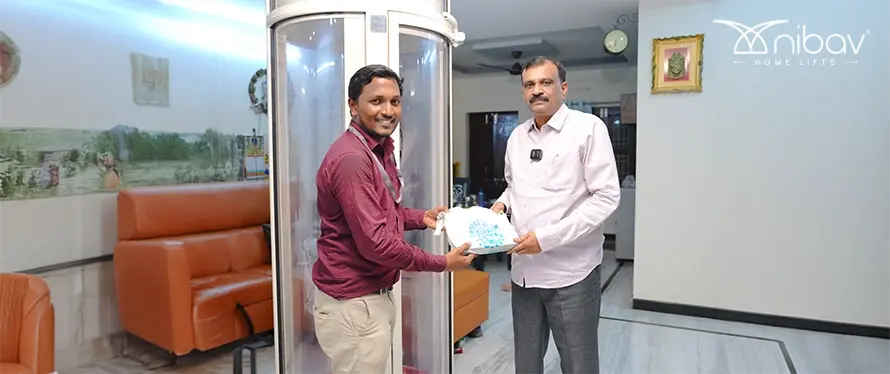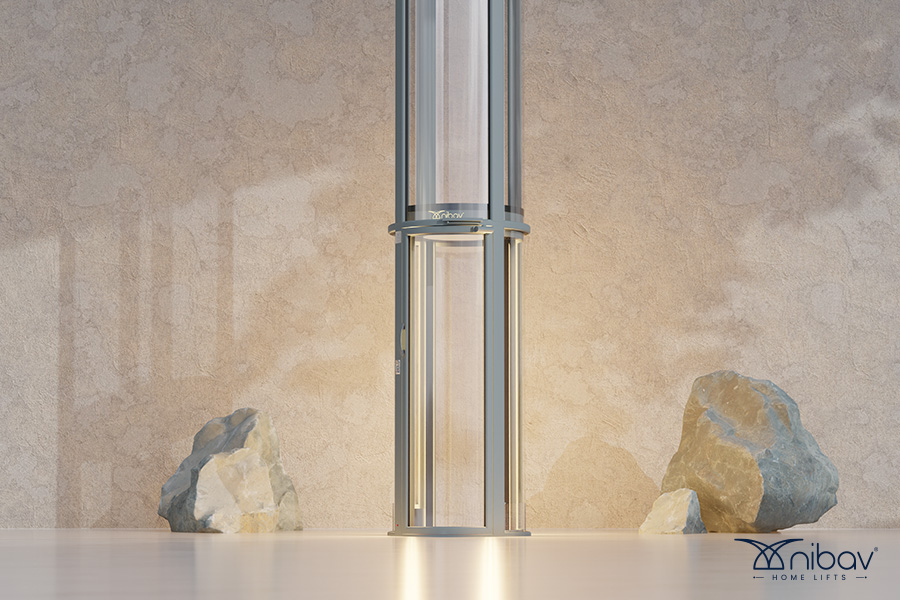Why Regular Home Elevator Inspections Matter | Nibav Home Lifts

Strong 8k brings an ultra-HD IPTV experience to your living room and your pocket.
Home elevators are no longer just a luxury for the elite; they have become a common feature in modern Indian homes. Homeowners appreciate the convenience, accessibility, and added property value they provide. However, like any mechanical system, home elevators require regular maintenance and inspection to ensure safety and optimal performance.
In this article, we will delve into the reasons why regular inspections of home elevators, like Nibav home lifts, are crucial. We will explore the benefits, safety measures, and maintenance tips to help homeowners keep their elevators in top-notch condition.
Why Are Regular Inspections Necessary?
1. Safety Assurance
The primary reason for regular home elevator inspections is safety. Elevators are complex systems with numerous mechanical and electrical components that can wear down over time. Regular inspections help identify any potential safety hazards, such as:
- Malfunctioning doors
- Worn-out cables or pulleys
- Faulty control systems
- Electrical issues
By addressing these issues promptly, you can prevent accidents, injuries, or even catastrophic failures.
2. Compliance with Safety Standards
Home elevator manufacturers, like Nibav, design their lifts to comply with local and international safety standards. However, these standards require ongoing maintenance to ensure continuous compliance. Regular inspections help you stay aligned with safety regulations and legal requirements, ensuring that your elevator operates within the set guidelines.
3. Prolonged Lifespan
Routine maintenance and inspection can significantly prolong the lifespan of your home elevator. Regular servicing helps detect minor issues before they escalate into major problems, thereby extending the life of components such as motors, cables, and control panels. This not only saves you money in the long run but also ensures the smooth functioning of your elevator for years to come.
Benefits of Regular Home Elevator Inspections
1. Cost Efficiency
Timely inspections help in detecting issues early on, allowing for minor repairs instead of major overhauls. For instance, replacing a worn cable is far more cost-effective than dealing with a complete breakdown caused by neglect. Investing in regular inspections can save you from unexpected repair costs and prevent downtime.
2. Enhanced Performance
Just like any other machinery, elevators perform better when maintained regularly. Regular inspections ensure that every part is working optimally, reducing wait times, improving ride smoothness, and enhancing overall user experience.
3. Increased Property Value
Well-maintained home elevators can increase your property’s resale value. Prospective buyers are more likely to consider a home with an elevator that has been properly maintained and regularly inspected, as it indicates the owner’s commitment to safety and quality.
Key Components to Inspect During Regular Maintenance
1. Doors and Interlocks
One of the most critical components to inspect is the door system. Doors must open and close smoothly without any delays. Inspecting the interlocks ensures that the elevator will not operate if the doors are not fully closed, a crucial safety feature.
2. Cables and Pulleys
Cables and pulleys are vital for the safe operation of an elevator. Regular inspections check for signs of wear, stretching, or fraying, which could lead to dangerous malfunctions.
3. Electrical Systems
The electrical components, including the control panel, motor, and wiring, must be regularly checked for faults, loose connections, or damaged wires. A malfunction in the electrical system can lead to sudden stops or failures, posing serious risks to users.
4. Emergency Systems
Emergency features, such as alarm buttons, phone lines, and backup power systems, must be tested during every inspection. These systems are essential for user safety in the event of a power failure or other emergencies.
Nibav Home Lifts: A Commitment to Safety and Quality
Nibav home lifts are designed with user safety and convenience in mind. With a focus on eco-friendly technology and minimal installation requirements, Nibav lifts are popular among homeowners looking for compact, energy-efficient solutions. However, even the best-designed elevators need regular inspections to maintain their safety and performance.
DIY Maintenance Tips for Homeowners
While professional inspections are necessary, homeowners can also conduct basic maintenance tasks to ensure the longevity and smooth operation of their home lifts. Here are some simple DIY tips:
1. Regular Cleaning
Ensure that the elevator car is clean and free of debris. Dirt and dust can affect the sensors and other components, leading to performance issues.
2. Listen for Unusual Noises
Pay attention to any unusual sounds, such as grinding or squeaking, which could indicate mechanical problems. If you hear anything abnormal, contact a professional immediately.
3. Check for Smooth Operation
Ensure that the elevator starts and stops smoothly, and the doors open and close without hesitation. If you notice any jerks or delays, schedule an inspection right away.
How Often Should Home Elevators Be Inspected?
The frequency of home elevator inspections depends on various factors, including usage, type of lift, and manufacturer recommendations. For Nibav home lifts, it is generally advisable to have a professional inspection at least once a year. However, if the lift is used frequently, bi-annual inspections might be necessary.
Choosing the Right Maintenance Provider
When it comes to choosing a maintenance provider for your home elevator, consider the following:
1. Experience and Expertise
Choose a company with a proven track record in home elevator maintenance. Providers with experience in maintaining Nibav home lifts are more likely to understand the specific needs of your lift model.
2. Comprehensive Inspection Plans
Look for a maintenance provider that offers comprehensive inspection packages, covering all critical components and systems.
3. Availability of Genuine Parts
Ensure that the provider uses genuine parts during repairs and replacements. This guarantees compatibility and reliability.
Conclusion
Regular home elevator inspections are not just a matter of compliance but also a crucial step toward ensuring safety, efficiency, and cost-effectiveness. For homeowners using Nibav home lifts, regular maintenance can enhance performance, increase property value, and extend the lifespan of the elevator. Always engage a professional maintenance provider to conduct thorough inspections and follow manufacturer recommendations for optimal safety and functionality.
Note: IndiBlogHub features both user-submitted and editorial content. We do not verify third-party contributions. Read our Disclaimer and Privacy Policyfor details.







